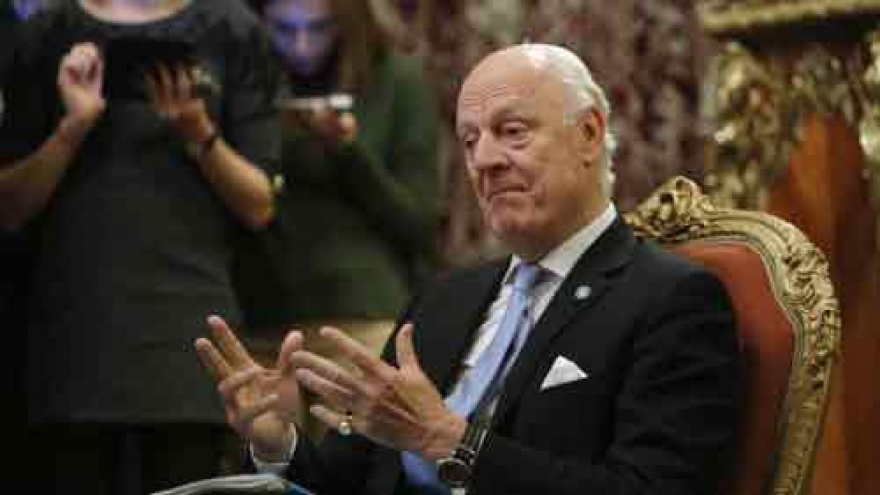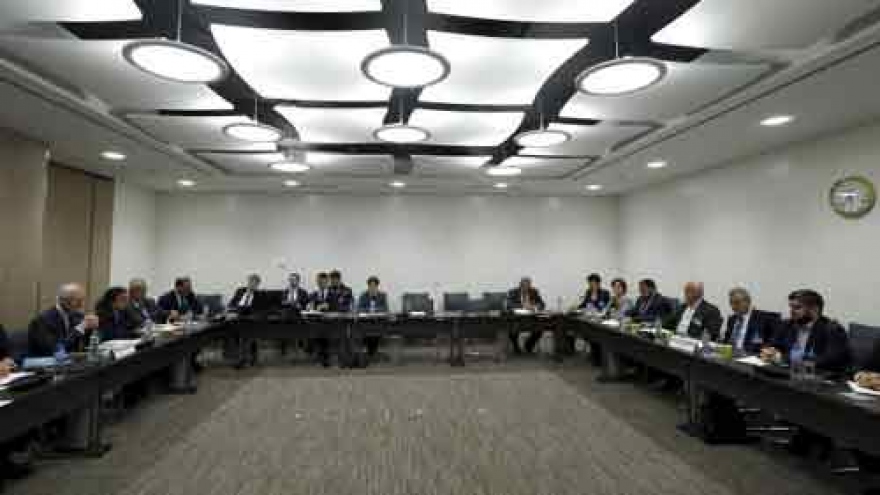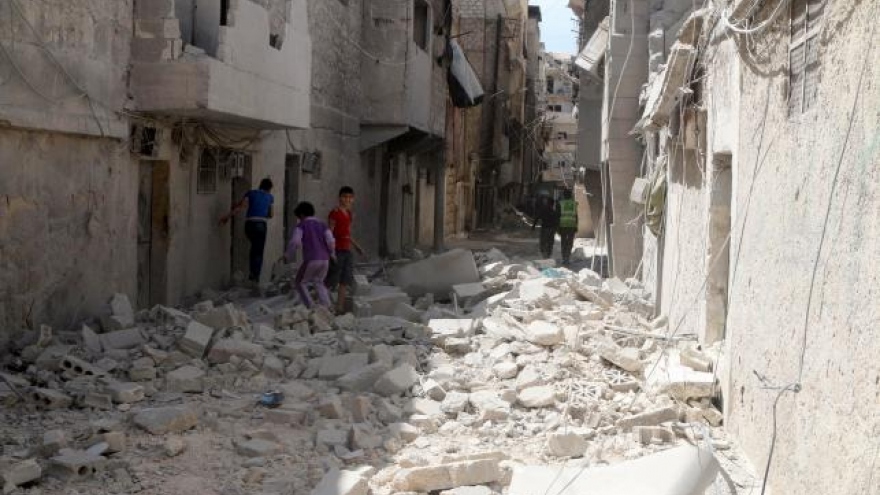Syria peace talks near collapse as opposition declares pause
Syrian peace talks came close to collapse on April 18, with the mainstream opposition announcing a pause in talks at the United Nations headquarters in Geneva, although it agreed to keep its negotiating team in the city.
The Western-backed opposition High Negotiations Committee (HNC) said in a letter to rebel fighters that government military advances meant a ceasefire was effectively over and it was calling a postponement in the talks.
Rebels, who accuse the government of breaking the ceasefire to try to recapture the northern city of Aleppo, announced an offensive of their own, launching an assault against government forces in Latakia province on the Mediterranean coast.
Opposition fighters made separate advances further east in Hama, while heavy government air strikes took place in Homs province to the south.
 |
"We want real negotiations, not farcical ones,” he said, adding that the opposition had not decided whether it would continue to meet U.N. envoy Staffan de Mistura.
"When there are 70 airstrikes, and when there is mobilizing of troops, when Iran sends further armed men and Russia sends a large group of rockets and unmanned planes, all this tells us that there is no real will for a political solution that ensures the safety and stability in the country," he said, naming countries that back Assad.
Nevertheless, de Mistura played down the decision by the opposition delegation to stay away from his headquarters, saying his team would continue to meet the delegates elsewhere as long as they were still in town.
He acknowledged that violence had become "worrisome", particularly around Aleppo, and said he would call on Moscow and Washington to meet urgently if the situation did not improve.
The United States also urged Russia to use its influence to make the government stop its attacks immediately. These threatened not only the partial ceasefire but also the talks in Geneva, a U.S. State Department official said.
Last month de Mistura convened the first peace talks attended by the warring parties since the conflict began five years ago. He has come further than any envoy so far in getting President Bashar al-Assad's government and its opponents to negotiate, with the United States and Russia sponsoring a partial ceasefire since Feb. 27 to allow the talks to take place.
So far all sides have committed to some kind of political transition that would follow the war. But they still differ fundamentally on what that means, including whether it would require Assad to leave power.




